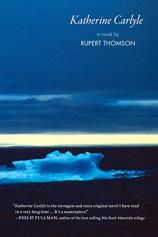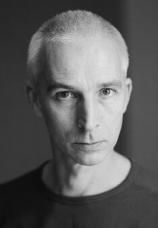Reading Group Guide
Discussion Questions
Katherine Carlyle

1. On page 64 Katherine muses, “My disappearance is like a crime without a motive.” Why do you think she goes on this journey? Does Katherine ever articulate why she leaves her life behind and heads north?
2. Katherine remembers her mother reassuring her that her death isn’t her fault, then explains “That last exchange didn’t happen” (p 212). What is the space between memory and imagination in KATHERINE CARLYLE, and what is Katherine’s relationship to each?
3. Discuss Katherine’s views on and relationships with men. How does each of the men she encounters on her journey compare to her father --- how she describes him, and her relationship with him?
4. Katherine makes several references to Antonioni’s The Passenger (see pp 11, 248, 292). Do you think Katherine’s imagination and understanding of her world is shaped by film, and if so, how?
5. What kind of a narrator is Katherine? What is the effect of having the story of her journey told in her voice and from her point of view?
6. In what ways does Katherine’s journey to the north mirror the journey of Mary Shelley’s monster in FRANKENSTEIN? Are there any other similarities between the two novels?
7. Do you think the relationship between Katherine and her mother is idealized?
8. Katherine describes the painting in Klaus’s apartment as “Glossy, smooth, and two-dimensional, its subject is the surface --- the power of the superficial --- but at the same time it’s an exercise in concealment, inscrutability” (p 110). What is the significance of the painting?
9. Throughout the novel Katherine displays an awareness of the power dynamics between her and the people she meets, asking “Is it any wonder I feel powerful?” (p 253). Do you think Katherine actually holds any power? Why does Katherine believe she is powerful, and how is that displayed in the story she tells? Are there moments in which Katherine is stripped of power? If so, what characterizes those moments?
10. Katherine often imagines her father’s reaction to her disappearance (see “My father calls, and I don’t answer” p 36; “My father will contact my friends” p 100; “My father might fly to Russia” p 183; “My father has arrived by ship” p287). What do her envisioned scenarios reveal about her desires and fears?
11. How does Katherine change over the course of the novel?
12. What was your reaction to the ending, and did it make you recall anything that had previously happened?
Katherine Carlyle
- Publication Date: October 6, 2015
- Genres: Fiction, Literary Fiction, Women's Fiction
- Paperback: 304 pages
- Publisher: Other Press
- ISBN-10: 1590517385
- ISBN-13: 9781590517383








